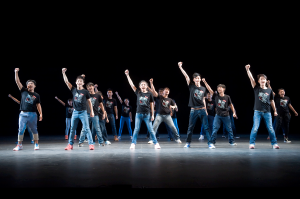WSJ: To Hong Kong, With Love
Hong Kong Documentary Focuses on Disadvantaged Students
By DEAN NAPOLITANO
Oscar-winner Ruby Yang’s new documentary about a group of Hong Kong students involved in a high-school musical seemed far removed from her acclaimed films on social issues facing China.

Until now.
“My Voice, My Life” is taking on added significance amid the student-led pro-democracy demonstrations in Hong Kong. While it has no obvious political agenda, the film arrived in cinemas this week as the role that teenagers play in society comes under scrutiny.
“It’s a very important time in Hong Kong,” says Ms. Yang, whose short documentary “The Blood of Yingzhou District,” on the impact of AIDS in a Chinese village, won an Academy Award in 2007. “The Warriors of Qiugang,” about a town plagued by pollution, was nominated for an Oscar in 2011.
Ruby Yang: ‘It’s about mentoring and connecting with each other.’ Ruby Yang
Ms. Yang’s latest project began last year when she was approached about directing a film on a summer musical-theater program for underprivileged students from working-class families and students from a school for the blind.
“At the beginning I didn’t want to do it,” she says. “I had no intention [of filming] this perfect world where the students and the teachers are so amazing.”
The turning point came at the first rehearsal, where she encountered a visually impaired student, Tsz Nok, who had lost his sight a year earlier. “There was something special about him,” Ms. Yang says. The teenager had quickly adapted to his handicap, but he was struggling with a mother who couldn’t accept his blindness.
The film looks at how Hong Kong educates “the next generation” and serves as a platform for discussion among parents, educators, and the community at large, she says. “It’s about mentoring and connecting with each other.”
But that challenge comes as students—who were born after the 1997 handover from British rule—come of age.
“I think there is no turning back for the young people,” she says. “It’s a political awakening.”
The original WSJ piece was published on Oct 16, 2014



